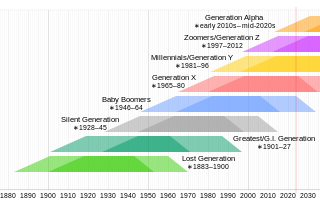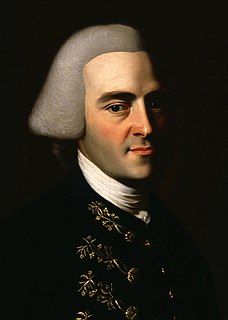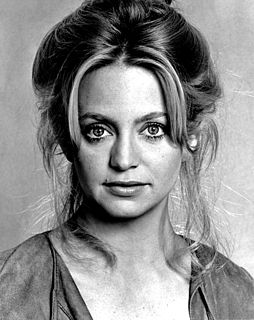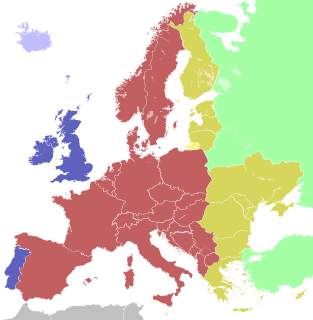Related Research Articles

Generation X is the demographic cohort following the baby boomers and preceding the millennials. Researchers and popular media typically use birth years around 1965 to 1980 to define Generation Xers, although some sources use birth years beginning as early as 1960 and ending somewhere from 1977 to 1985. By this definition and U.S. Census data, there are 65.2 million Gen Xers in the United States as of 2019. Most members of Generation X are the children of the Silent Generation and early boomers; Xers are also often the parents of millennials and Generation Z.

John Hancock was an American merchant, statesman, and prominent Patriot of the American Revolution. He served as president of the Second Continental Congress and was the first and third Governor of the Commonwealth of Massachusetts. He is remembered for his large and stylish signature on the United States Declaration of Independence, so much so that the term "John Hancock" has become a synonym in the United States for one's signature.
New wave is a music genre that encompasses numerous pop-oriented styles from the late 1970s and the 1980s. It was originally used as a catch-all for the music that emerged after punk rock, including punk itself, but may be viewed retrospectively as a more accessible counterpart of post-punk. Although new wave shared punk's DIY philosophy, they avoided the iconoclastic, abrasive and political aspects of punk rock; the artists were more influenced by the bubble-gum, bourgeois strains of 1960s pop while opposed to mainstream "corporate" rock, which they considered creatively stagnant. In the early 1980s, virtually every new pop/rock act – and particularly those that featured synthesizers in their sound – was tagged as "new wave". By the 2000s, critical consensus favored "new wave" to be an umbrella term that encompassed power pop, synth-pop, ska revival, and the softer strains of punk rock.

The 1980s was a decade of the Gregorian calendar that began on January 1, 1980, and ended on December 31, 1989.

The 1980 United States presidential election was the 49th quadrennial presidential election. It was held on Tuesday, November 4, 1980. Republican nominee Ronald Reagan defeated incumbent Democrat Jimmy Carter in a landslide victory. This was the second consecutive election in which the incumbent president was defeated after Carter himself defeated Gerald Ford four years earlier in 1976. Additionally, it was only the second time, and the first in nearly 100 years that a Republican candidate defeated an incumbent Democrat. Due to the rise of conservatism following Reagan's victory, some historians consider the election to be a political realignment that marked the start of the Reagan Era.

Gary Cooper was an American actor known for his natural, authentic, and understated acting style. He won the Academy Award for Best Actor twice and had a further three nominations, as well as receiving an Academy Honorary Award for his career achievements in 1961. He was one of the top 10 film personalities for 23 consecutive years, and one of the top money-making stars for 18 years. The American Film Institute (AFI) ranked Cooper at No. 11 on its list of the 25 greatest male stars of classic Hollywood cinema.

Goldie Jeanne Hawn is an American actress, producer, dancer, and singer. She rose to fame on the NBC sketch comedy program Rowan & Martin's Laugh-In (1968–70), before going on to receive the Academy Award and Golden Globe Award for Best Supporting Actress for her performance in Cactus Flower (1969).

The Empire Strikes Back, also known as Star Wars: Episode V – The Empire Strikes Back, is a 1980 American epic space opera film directed by Irvin Kershner and written by Leigh Brackett and Lawrence Kasdan, based on a story by George Lucas. Produced by Lucasfilm, it is the second film in the Star Wars film series and the sequel to Star Wars (1977). Set three years after the events of the first film, the plot sees the Galactic Empire hunting the scattered Rebel Alliance throughout the galaxy. While Darth Vader relentlessly pursues Luke Skywalker's friends—Han Solo, Princess Leia, and Chewbacca—Luke studies the Force under Jedi Master Yoda to prepare himself for his upcoming confrontation with Vader. The ensemble cast includes Mark Hamill, Harrison Ford, Carrie Fisher, Billy Dee Williams, Anthony Daniels, David Prowse, Kenny Baker, Peter Mayhew, and Frank Oz.

The 1980 Summer Olympics, officially known as the Games of the XXII Olympiad and commonly known as Moscow 1980, were an international multi-sport event held from 19 July to 3 August 1980 in Moscow, Soviet Union, in present-day Russia. The Games were the first to be staged in Eastern Europe, and remain the only Summer Olympics held there, as well as the first Olympic Games to be held in a Slavic language-speaking country. They were also the only Summer Olympic Games to be held in a communist country until 2008 Summer Olympics held in China. These were the final Olympic Games under the IOC Presidency of Michael Morris, 3rd Baron Killanin.
Synth-pop is a subgenre of new wave music that first became prominent in the late 1970s and features the synthesizer as the dominant musical instrument. It was prefigured in the 1960s and early 1970s by the use of synthesizers in progressive rock, electronic, art rock, disco, and particularly the Krautrock of bands like Kraftwerk. It arose as a distinct genre in Japan and the United Kingdom in the post-punk era as part of the new wave movement of the late 1970s to the mid-1980s.
Indie rock is a genre of rock music that originated in the United States and United Kingdom in the 1970s. Originally used to describe independent record labels, the term became associated with the music they produced and was initially used interchangeably with alternative rock or "guitar pop rock". In the 1980s, the use of the term "indie" started to shift from its reference to recording companies to describe the style of music produced on punk and post-punk labels. During the 1990s, grunge and punk revival bands in the US and Britpop bands in the UK broke into the mainstream, and the term "alternative" lost its original counter-cultural meaning. The term "indie rock" became associated with the bands and genres that remained dedicated to their independent status. By the end of the 1990s, indie rock developed several subgenres and related styles, including lo-fi, noise pop, emo, slowcore, post-rock, and math rock. In the 2000s, changes in the music industry and a growing importance of the Internet enabled a new wave of indie rock bands to achieve mainstream success, leading to questions about its meaningfulness as a term.
Alternative rock is a category of rock music that emerged from the independent music underground of the 1970s and became widely popular in the 1990s. "Alternative" refers to the genre's distinction from mainstream or commercial rock or pop music. The term's original meaning was broader, referring to a generation of musicians unified by their collective debt to either the musical style or simply the independent, DIY ethos of punk rock, which in the late 1970s laid the groundwork for alternative music.
Electropop is a music genre combining elements of electronic and pop genres. Writer Hollin Jones has described it as a variant of synth-pop with heavy emphasis on its electronic sound. The genre saw a revival of popularity and major influence in the 2000s.
Action fiction is the literary genre that includes spy novels, adventure stories, tales of terror and intrigue and mysteries. This kind of story utilizes suspense, the tension that is built up when the reader wishes to know how the conflict between the protagonist and antagonist is going to be resolved or what the solution to the puzzle of a thriller is.
Dance-pop is a popular music subgenre that originated in the early 1980s. It is generally uptempo music intended for nightclubs with the intention of being danceable but also suitable for contemporary hit radio. Developing from a combination of dance and pop with influences of disco, post-disco and synth-pop, it is generally characterised by strong beats with easy, uncomplicated song structures which are generally more similar to pop music than the more free-form dance genre, with an emphasis on melody as well as catchy tunes. The genre, on the whole, tends to be producer-driven, despite some notable exceptions.

Central European Summer Time (CEST), sometimes referred to as Central European Daylight Time (CEDT), is the standard clock time observed during the period of summer daylight-saving in those European countries which observe Central European Time during the other part of the year. It corresponds to UTC+02:00, which makes it the same as Eastern European Time, Central Africa Time, South African Standard Time, Egypt Standard Time and Kaliningrad Time in Russia.

The 1980 United States House of Representatives elections was an election for the United States House of Representatives in 1980 which coincided with the election of Ronald Reagan as President, defeating Democratic incumbent President Jimmy Carter. Reagan's victory also allowed many Republican House candidates to secure elections. The Republicans gained a net of 35 seats from the Democratic Party. The Democrats nonetheless retained a significant majority, unlike the Senate elections, where Republicans gained control of the chamber. However, many Democratic congressmen from the south frequently took conservative stances on issues, allowing Republicans to have a working ideological majority for some of President Reagan's proposals during his first two years in office.
This is an index of lists of films by year, awards, countries of origin and genre among other factors.

The United States Census of 1980, conducted by the Census Bureau, determined the resident population of the United States to be 226,545,805, an increase of 11.4 percent over the 203,184,772 persons enumerated during the 1970 Census. It was the first census in which a state – California – recorded a population of 20 million people, as well as the first in which all states recorded populations of over 400,000.

Theosophy is a religion established in the United States during the late nineteenth century. It was founded primarily by the Russian immigrant Helena Blavatsky and draws its teachings predominantly from Blavatsky's writings. Categorized by scholars of religion as both a new religious movement and as part of the occultist stream of Western esotericism, it draws upon both older European philosophies such as Neoplatonism and Asian religions such as Hinduism and Buddhism.
References
- ↑ Number One Singles of 1980